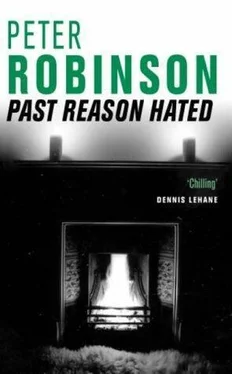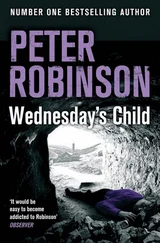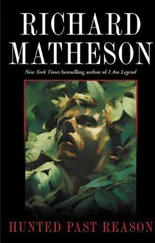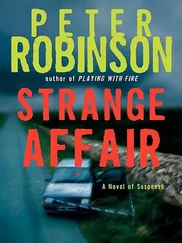‘A message for you, sir,’ Sergeant Rowe called out as Banks walked into the police station after his visit to Veronica Shildon. He handed over a piece of paper. ‘It was a woman called Patty Jarouchki, I think. Sounded American. Anyway, she left her number. Said for you to call her as soon as you can.’
Banks thanked him and hurried upstairs to his office, grabbing a black coffee on the way. The CID offices were quiet, the tapping of a keyboard from Richmond’s office the only sign of life. He picked up the phone and dialled the number Sergeant Rowe had given him. Patsy Janowski answered on the third ring.
‘You had a message for me?’ Banks said.
‘Yes. Remember you asked me to try and recall if I’d noticed anything unusual in the area?’
‘Yes.’
‘Well, it’s not really… I mean, it’s not clear at all, but you know I said there was a woman?’
‘The one crossing King Street?’
‘Yes.’
‘What about her?’
‘I didn’t get a good look or anything – I’m sure it wasn’t anyone I knew – but I do remember she was walking funny.’
‘In what way?’
‘Just… funny.’
‘Did she have a limp, a wooden leg?’
‘No, no, it was nothing like that. At least I don’t think so.’
‘A strange kind of walk? Some people have them. Bow-legged? Knock-kneed?’
‘Not even that. She was just struggling a bit. There was snow on the ground. Oh, I knew I shouldn’t have called you. It’s still not clear, and it’s probably nothing. I feel stupid.’
Banks could imagine her eyes ranging about the room, resting on the tongs by the fire, the old snuff-box on the mantelpiece. ‘You did right,’ he assured her.
‘But I’ve told you nothing, really.’
‘It might mean something. If you think of anything else, will you stop accusing yourself of idiocy and call me?’
He could almost hear her smile at the other end of the line. ‘All right,’ she said. ‘But I don’t think it’ll get any clearer.’
Banks said goodnight and broke the connection. For a moment he just sat on the edge of his desk, coffee in hand, staring at the calendar. It showed a wintry scene in Aysgarth, Wensleydale. Finally, he lit a cigarette and went over to the window. Outside, beyond the venetian blinds, the market square was deserted. The Christmas-tree lights still twinkled, but nobody passed to see them. It was that time of year when everyone had spent too much and drunk too much and seen too many people; now most Eastvalers were holed up in their houses keeping warm and watching repeats on television.
The day’s depression was still with him, and the mystery of Caroline Hartley’s death was still shrouded in fog. There had to be some way of making sense of it all, Banks told himself. He must have overlooked something. The only solution to his bleak mood was mental activity. As he stood at the window looking down on the forlorn Christmas lights, he tried to recreate the sequence of events in his mind.
First of all, he discounted the arrival of yet another visitor after the mysterious woman at seven twenty. He also accepted that by the time Patsy Janowski had called and talked to Caroline Hartley briefly at her door, Claude Ivers was busy doing his last-minute shopping in the centre and getting ready to head back to Redburn, and Veronica Shildon was shopping too.
A woman, perhaps the same one Patsy said walked strangely, knocked at Caroline’s door and was admitted to the house. What had happened inside? Had the woman been an ex-lover or a jilted suitor? Had she called to remonstrate and ended up losing her temper and killing Caroline? Presumably there could have been sex involved. After all, Caroline had been naked, and the kind of sex she was interested in wouldn’t oblige by leaving semen traces for the forensic boys to track down.
There was just no way of knowing. Caroline’s life had been full of mysteries, a breeding ground for motives. As a working hypothesis, Banks accepted that the crime was spur of the moment rather than a planned murder. The use of the handy knife and the lack of precaution about being seen, or caught by Veronica, who had been likely to arrive home at any moment, seemed to point that way. And unless Caroline had been involved in some unknown criminal activity, the odds were that passion of one kind or another lay at the root of her death.
After the murder came the clearing up. The killer had washed the knife, removed any possible fingerprints she might have left, and either put the Vivaldi record on the turntable or lifted up the arm. Given the savage nature of the wounds, the killer must also have got blood on her own clothing. If she had removed her coat before the deed, she could easily have covered her blood-spattered clothing with it and destroyed all evidence as soon as she got home.
Banks went to refill his coffee mug and returned to his office.
Something in Patsy Janowski’s sketchy description of the woman bothered him, but he couldn’t think what it was. He walked to the filing cabinet and dug out the reports on interviews with Caroline Hartley’s neighbours. Nothing much there helped, either. The details were vague, as the evening had been dark and snowy. Again, he read through the descriptions of the mystery woman: Mr Farlow had said she was wearing a mid-length, light trenchcoat with the belt fastened. He had seen her legs beneath it, and perhaps the bottom of a dress. She had been wearing a headscarf, so he had been able to say nothing about her hair. Mrs Eldridge had little to add, but what she remembered agreed with Farlow’s account.
Despite the coffee, Banks was getting tired. It really was time to go home. There was nothing to be gained by pacing the office. He slipped on his camel-hair overcoat and put the Walkman in his pocket. After he’d walked down the stairs and said goodnight to Sergeant Rowe at the front desk, he hesitated outside the station under the blue lamp and looked at the Queen’s Arms. A rosy glow shone warmly from its smoky windows. But no, he decided, best go home and spend some time with Sandra. It was a clear, quiet night. He would leave the car in the station car park and walk the mile or so home.
He put the headphones on, pressed the button and the opening of Poulenc’s ‘Gloria’ came on. As he walked on the crisp snow down Market Street, he looked at the patterns frost had made on the shop windows and wished that the odd bits and pieces of knowledge he had about the Hartley case could make similar symmetrical shapes. They didn’t. He began to walk faster. Christ, his feet were cold. He should have worn sheepskin-lined boots, or at least galoshes. But he had never really thought about walking home until the impulse struck him. Then something leaped into his mind as he turned into his cul-de-sac and saw the welcome lights of home ahead, something that made him forget his cold feet for the last hundred yards.
Patsy Janowksi had said the woman walked strangely. She couldn’t explain it any better than that. But Mr Farlowe said he was sure the visitor was a woman because he had seen her legs below her long coat. If that was the case, then her legs were bare; she either wasn’t wearing boots at all, or she was wearing very short ones. It had been snowing quite heavily that evening since about five o’clock, and the snow had been forecast as early as the previous evening, so even a woman going to work that morning would have known to take her boots. Even before the snow, the weather had been grey and cold. Most of December had been lined-boots and overcoat weather.
Now why would a woman be trudging around in the snow without boots at seven twenty that night? Banks wondered. She could have been in a hurry and simply slipped on the first pair of shoes that caught her eye. She could have come from somewhere she hadn’t needed boots. But that didn’t make sense. In such weather, most people wear boots to work, then change into more comfortable shoes when they get there. When it’s time to leave, they slip back into their boots for the journey home.
Читать дальше












